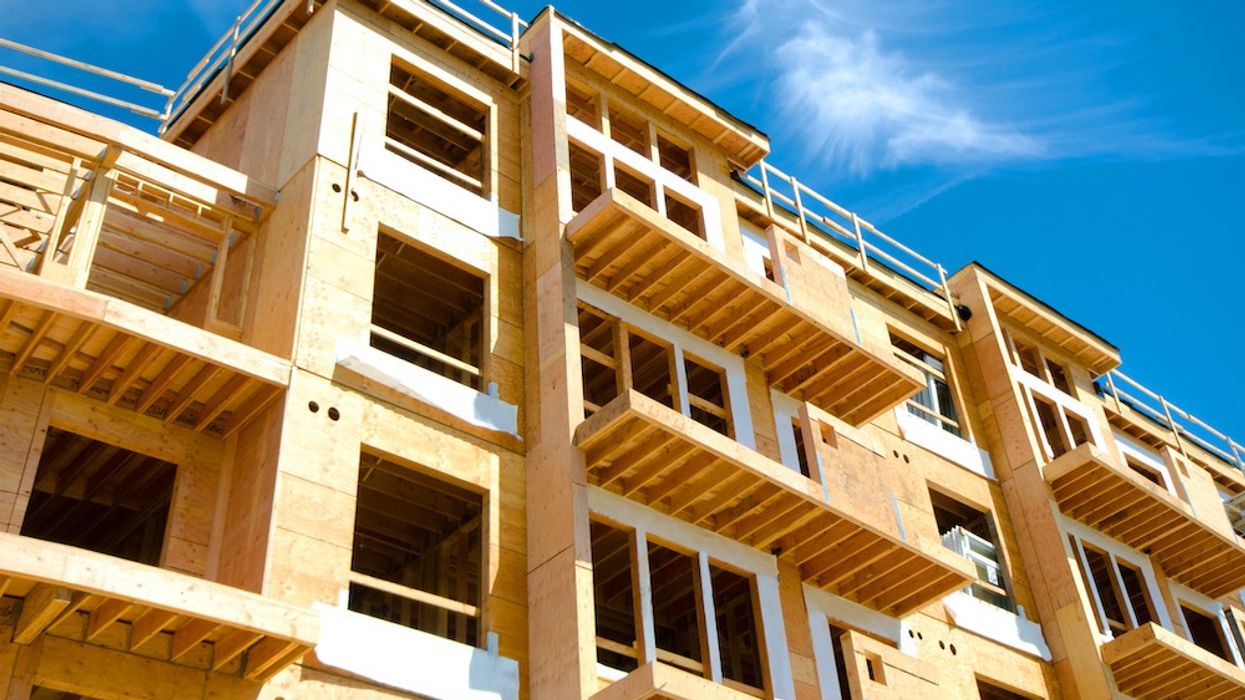The Ontario Home Builder's Association (OHBA) is calling on the Government of Ontario to audit municipalities' collection and use of development-related fees, expressing concerns about a lack of transparency and accountability.
Speaking at Queen's Park on Wednesday morning, the OHBA made its call to the government, emphasizing a desire to see that collected fees, including development charges and parkland fees, are being used for their intended purpose.
“Municipalities across the Greater Toronto Area collect, on average, $116,000 per new housing unit in development charges, parkland fees and other growth funding charges, and these fees are reflected in the cost of new homes,” said Luca Bucci, CEO of OHBA.
“We know from municipalities’ financial information returns, filed annually with the Ministry of Municipal Affairs and Housing, that municipalities in the GTA are holding in reserve more than $6B in development charges, parkland cash-in-lieu and Section 37 fees, and they are spending a fraction of what they collect on an annual basis. Municipalities across the province hold reserves in excess of $9B and these reserves are growing rapidly.”
The OHBA's call follows the passage of the provincial government's controversial Bill 23, which allows for freezing, reducing, or eliminating fees paid by developers. This move has been lambasted by municipalities, who use the fees to support investments in the neighbourhoods these new developments are going in, such as infrastructure projects, community centres, parks, and new homes. Major cuts to this revenue, they say, will prevent them from adequately servicing the residents of these new developments.
Toronto Mayor John Tory has repeatedly addressed the city's reserve funds, which totaled $2.3B at the end of 2021, rejecting the idea that the city can simply dip into them to make up for the lost revenue.
“Yes, the City has development charge reserves and they have a lot of money in them, and that is because we collect the development charge but we’re not necessarily building the sewer pipe or building the road or building the transit project that day,” Tory said during a press conference last month. “And so it is a legal obligation that we keep that money in a reserve fund, not some kind of bank account that’s like a piggy bank.”
Bill 23 is expected to cost Toronto $200M per year in lost revenue, according to City estimates. The Association of Municipalities of Ontario estimates that the bill will bring about $5.1B in lost revenue across Ontario municipalities over a nine year span -- roughly $555M per year.
The OHBA, however, commissioned an analysis of municipal development fee data and came to the conclusion that "municipalities are overstating the impact." They point to 2020 revenue as an example of this. During that year, the report says, Ontario municipalities received $56.6B in revenues, meaning the $555M loss would represent less than 1% of total municipal revenues.
The analysis, conducted by Altus Group Economic Consulting, also found that in 2020, municipalities earned $1.02B in investment income and interest earnings from reserve fund surpluses. Looking at the stated amounts of committed spending over the next five to 10 years, Altus Group concluded that the amount of money currently held in reserves for "many municipalities" will cover roughly five or six years of projects. In Toronto, there is 5.97 years of spending in reserve, and in Ottawa, there is 5.52 years of spending, based on current spending commitments.
“Why does the municipalities’ own data, submitted to the province, show large and growing surpluses?” Bucci said. “Why have certain municipalities spent far less than they have collected, every year for more than a decade, and why are municipalities crying poor over changes intended to help bring housing affordability back to Ontario?"
Bucci says they would like to see the audit completed for select municipalities. He did not name any specifically, but added that the audit would ensure transparency for ratepayers and new home buyers.
"The people of Ontario deserve the facts," Bucci said.





















